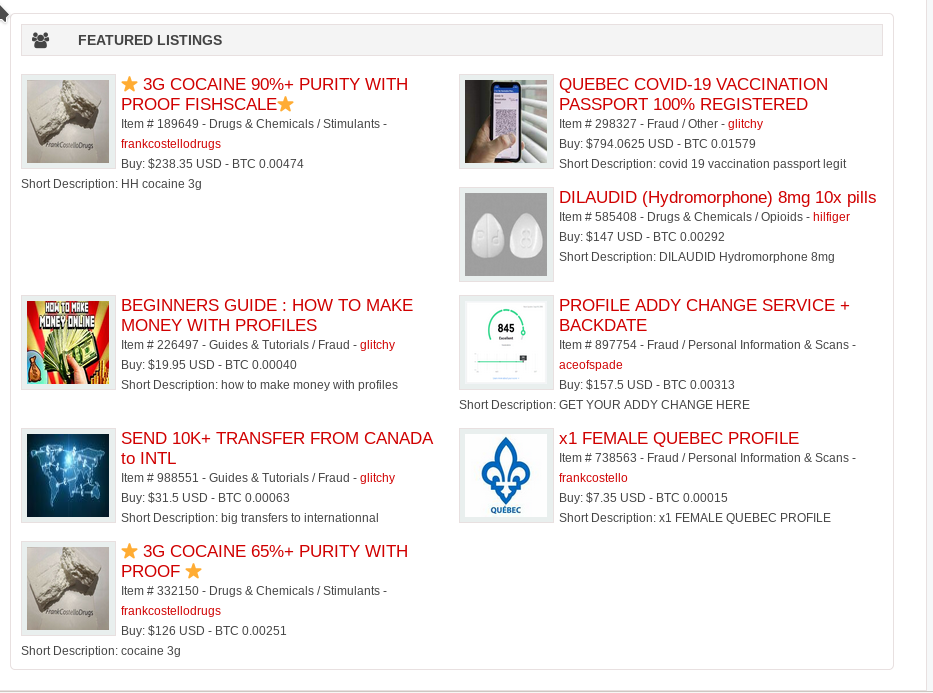In the depths of the internet lies a hidden world that operates outside the grasp of conventional search engines and social media platforms. This is the realm of the dark web, a part of the internet that is frequently linked to anonymity and illegal activities. Dark web markets have garnered considerable attention in recent years, enticing a mix of curious explorers, cybercriminals, and those looking for items and products that are difficult to find on the clear web.
As people delve into the complexities of the dark web, they encounter different marketplaces that trade in everything from legal drugs to stolen data. These markets operate on the principle of anonymity, using encryption and other technologies to protect the anonymity of buyers and sellers. However, this veil of anonymity poses important concerns about lawfulness, ethics, and the implications of engaging in such exchanges. Exploring the dark web offers a view into one of the most controversial and misconstrued aspects of the web, exposing both the appeal and the risks of this hidden landscape.
Grasping the Hidden Web
The shadow web is a part of the internet that is unindexed by conventional search engines, making it challenging to utilize for most individuals. It demands special software, such as The Onion Router, to navigate and explore, providing anonymity to users and allowing them to take part in activities that can be both legal and unlawful. This secret realm encourages a sense of privacy and security, attracting a varied range of individuals, including informants, campaigners, and individuals looking to evade watchful eyes.
Within the shadow web, a diversity of marketplaces have developed, concentrating in the exchange of products and offerings that range from the innocuous to the illicit. These markets often work on a cryptocurrency basis, making certain transactions continue to be discreet and secure. While certain shadow web markets emphasize on privacy-focused tools, others may trade in forbidden drugs, arms, or stolen data, establishing an environment that is both intriguing and dangerous.
Comprehending the dark web is essential in assessing the broader ramifications of its existence. While it serves as a sanctuary for legitimate pursuits, such as free speech in tyrannical regimes, it simultaneously poses significant obstacles to law enforcement and society at large. Dealing with the challenges of the shadow web calls for a balanced approach that measures the necessity for security with the entitlements to confidentiality and freedom of expression.
The Economics of Dark Web Markets
The hidden web operates on a special economic model that varies substantially from standard markets. One of the defining features is the utilization of digital currencies, which enable buyers and sellers to conduct trades without revealing their identity. This concealment encourages a feeling of safety among users, permitting them to engage in risky endeavors without worry of detection by authorities. The rise of cryptocurrencies like Bitcoin and Monero has additionally enhanced this environment, making exchanges swift and not as vulnerable to banking regulations.
Supply and demand dynamics on the dark web are intriguing. darknet markets url Marketplaces often exhibit a wide array of goods and services, ranging from illegal drugs and forged items to cyber services and private data. This diversity attracts a varied user base, driving contestation among vendors. Some sellers thrive on credibility and customer reviews, while others rely on aggressive pricing strategies. The rivalry often leads to advancements in goods provided and support methods, even amid these illicit trade practices.
On the other hand, the inherently unstable character of dark web markets presents significant risks. Law enforcement agencies continuously scrutinize these platforms, leading to occasional enforcement actions that can disrupt market equilibrium suddenly. Marketplaces may disappear or be confiscated, causing sellers and buyers to suffer financial losses suddenly. Moreover, the presence of fraudulent sellers can create mistrust among users, prompting a careful stance to purchasing. Thus, while the allure of anonymity and unregulated commerce attracts many, players in these markets must navigate a complex environment filled with risks and danger.
Dangers and Consequences of Dark Web Engagement
Involvement with illicit online markets poses considerable dangers, both legally and personally. One of the main concerns is the legal repercussions associated with buying or trading illegal goods and services. Police have become increasingly adept at pursuing transactions on the dark web, leading to detentions and prosecutions for those involved in criminal deals. Users may end up confronting harsh penalties, including large monetary penalties and lengthy incarceration.
In addition to judicial threats, navigating the illicit online world can subject individuals to cyber threats. The anonymity and unregulated nature of these markets attract a diverse array of dangerous actors, such as cybercriminals and con artists. Users may fall victim to fraud, financial fraud, or further cybercrimes. Additionally, engaging in these markets can lead to a erosion of safety, as individuals may unknowingly share sensitive information or come across violent or dangerous material.

Ultimately, the mental effects of engaging with deep web markets should not be overlooked. The nature of the products and items often found there can be upsetting, causing anguish or numbness to violence and criminal conduct. This can lead to heightened anxiety and internal conflicts, creating a tension between moral beliefs and the temptation of anonymity and liberty that the deep web offers. All in all, these aggregated threats illustrate the dangerous landscape of deep web engagement.
